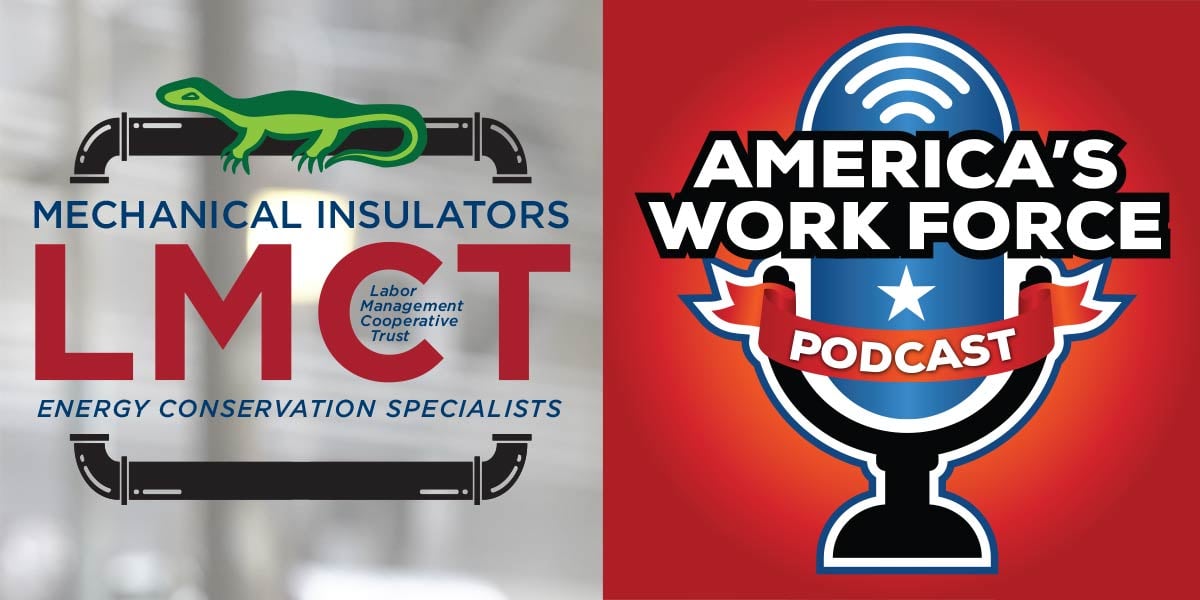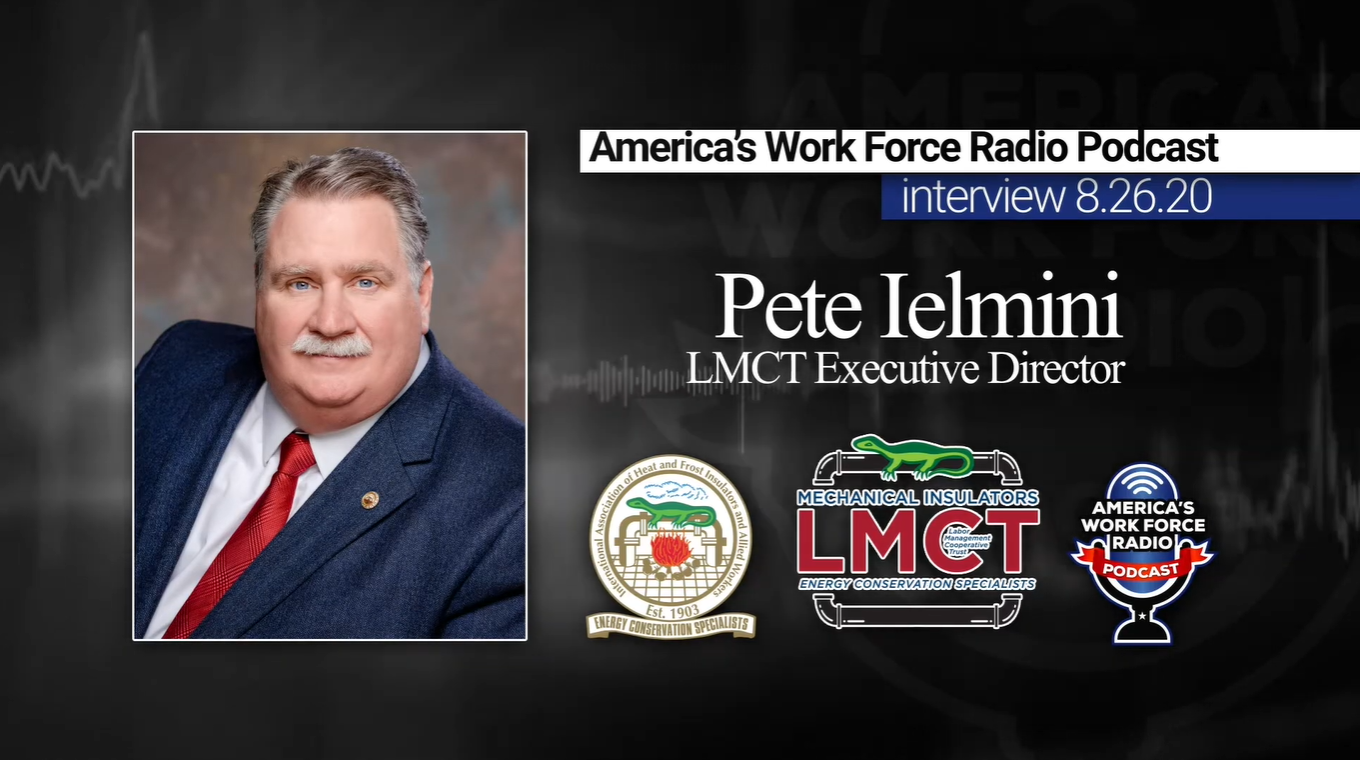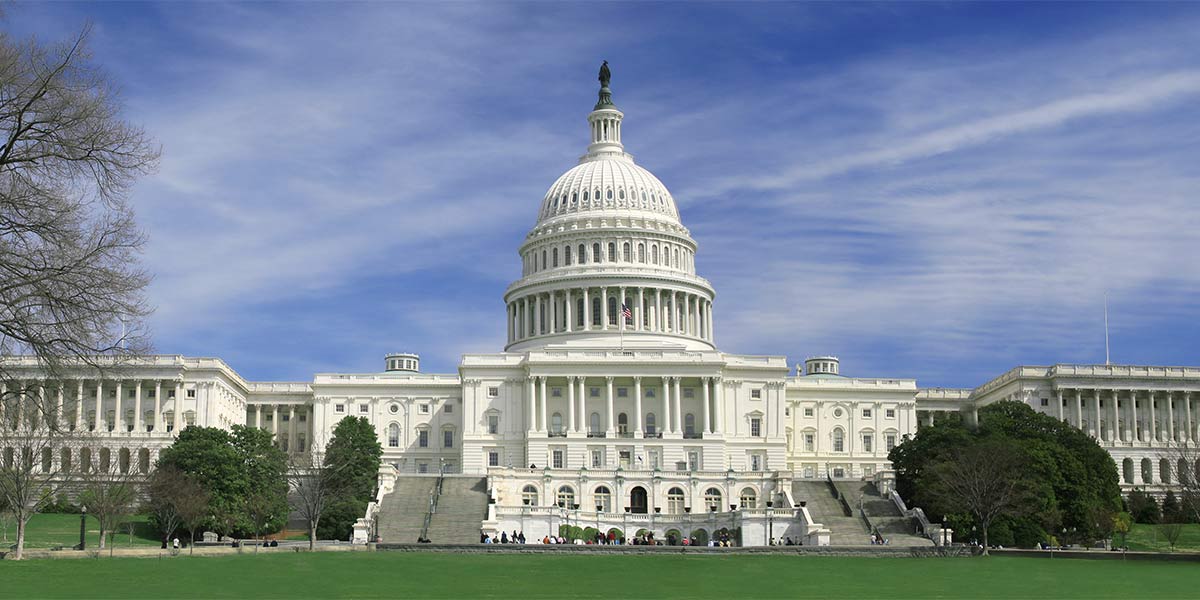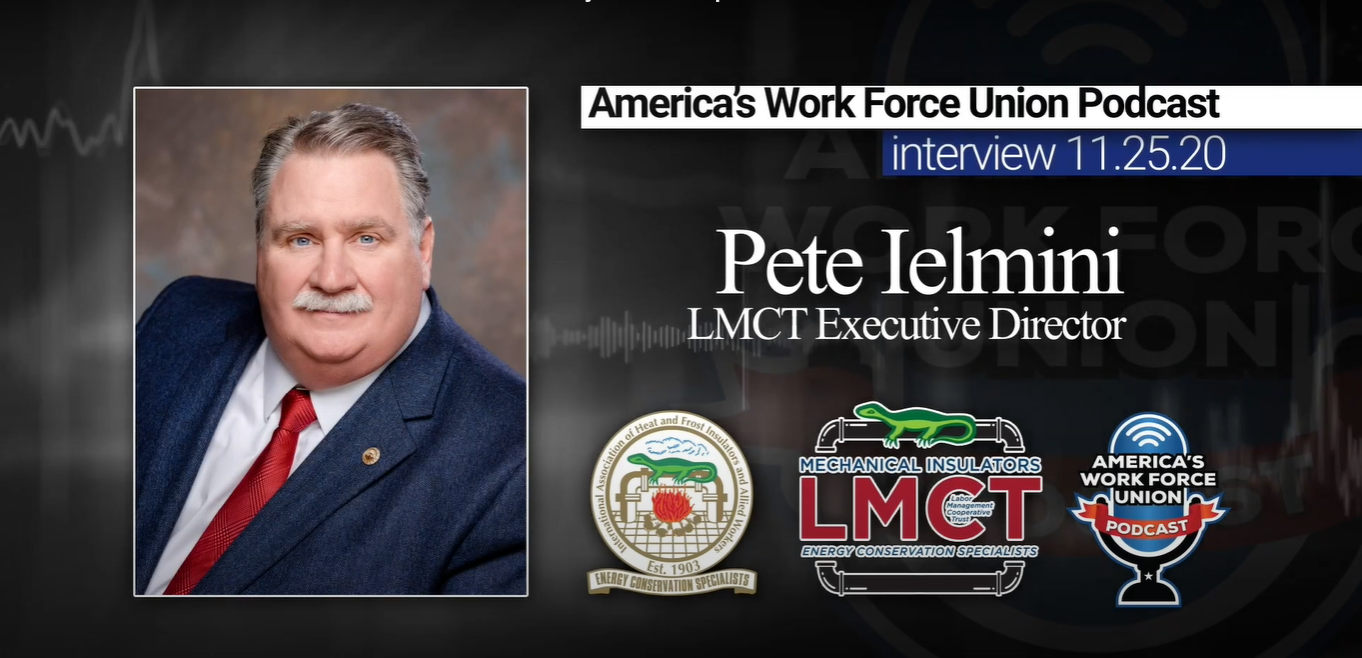
Mechanical Insulators Labor Management Cooperative Trust (LMCT) Executive Director Pete Ielmini appeared on the America’s Work Force Union Podcast and discussed why Mechanical Insulation tax incentives are a bipartisan issue and should be included in legislation that revamps parts of the “Build Back Better” budget reconciliation bill.
For years, the LMCT has lobbied for language to provide tax incentives to building owners who install Mechanical Insulation, he said. It was part of the “Build Back Better” bill, but the legislation failed to cross the 50-vote threshold in the U.S. Senate last December.
Ielmini argued such tax incentives should appeal to both parties because Mechanical Insulation has mutual benefits on both sides of the aisle. These incentives create good paying jobs for union and non-union workers alike, he said.
Mechanical Insulation should also appeal to environmentalists and those who wish to lessen our dependence on foreign oil, especially given the tragic events in Ukraine, Ielmini said. The installation of Mechanical Insulation substantially improves fuel efficiency. Every barrel of oil saved is good for the environment and cuts demand for fossil fuels, particularly Russian oil, he added.
The LMCT is actively working to educate legislators about the need to encourage the installation of Mechanical Insulation, Ielmini said. Too much energy is being wasted because the nation’s buildings lack efficient Mechanical Insulation, he added.
The LMCT is hopeful tax incentives for Mechanical Insulation will be included in legislation and passed within the calendar year, Ielmini said.
Maryland state legislature passes Mechanical Insulation incentives
Ielmini also talked about state incentives for Mechanical Insulation recently passed in Maryland. Gov. Larry Hogan, a Republican, is expected to sign the legislation by June, he added.
Instead of a tax credit, the incentive was modified into a grant available to building owners to help cover the cost of Mechanical Insulation.
It may be easier for building owners to apply for a grant, so more may take advantage of the incentive, Ielmini said. He likened the incentive to a store sale: In the end, people will spend more because of the savings, which means an increase in Mechanical Insulation and better energy savings across the board.
Ielmini also discussed the Canada's Building Trades Unions (CBTU) Annual Conference in Ottawa, which he recently attended. He said he was pleasantly surprised to see how well the CBTU partners with building trades in the U.S. through union solidarity.



Comments